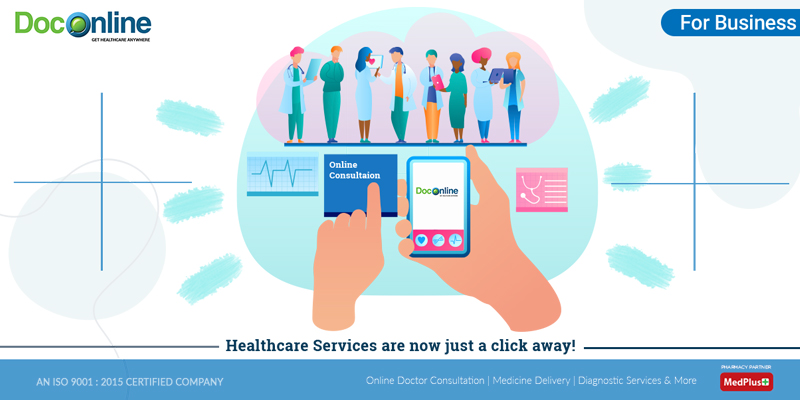Browsing the Future of Medicine With Subscription-Based Health Care Services
As the medical care market progresses, subscription-based solutions become a pivotal version promising to reshape person treatment distribution. With the potential to use structured, economical options with predictable rates and personalized attention, these solutions stand at the center of contemporary clinical innovation. As we consider their surge, one must consider the implications of incorporating such systems into existing healthcare frameworks. What obstacles do they present in regards to data safety and equitable access, and just how might they redefine the patient-provider connection? The response to these concerns might fundamentally alter our approach to medical care.
Rise of Membership Health Care
As health care systems worldwide face boosting stress from climbing expenses and demand for services, the introduction of subscription-based health care designs has actually become a transformative trend. This ingenious method is interrupting conventional medical care shipment by supplying a predictable, flat-rate repayment framework for medical services. Rooted in the concepts of concierge medicine, subscription-based medical care allows suppliers to concentrate on customized patient treatment while concurrently managing functional performances.
The increasing customer demand for openness and predictability in healthcare expenses has actually driven the change in the direction of this model. Subscription-based services often offer straight access to health care experts, which can minimize the administrative problems associated with insurance policy cases and reimbursements.
This version is obtaining traction among diverse doctor, from medical care medical professionals to specialized centers, by straightening economic rewards with continual and preventative care. By shifting the focus from volume to value-based care, registration health care has the potential to reshape the landscape, fostering a more lasting and patient-centered approach to health monitoring.
Advantages for Patients

Furthermore, subscription-based services commonly highlight precautionary care, urging regular check-ups and health and wellness screenings. This aggressive method can result in very early discovery of health problems, potentially improving end results and reducing lasting health care expenses for patients. Additionally, such versions normally supply transparent pricing, enabling patients to much better understand their healthcare expenses and stay clear of unanticipated medical costs.
The customized nature of subscription-based medical care likewise enhances patient experience. People can receive customized health care plans that suit their certain needs, cultivating an extra patient-centric technique.
Modern technology's Duty in Improvement

Expert system (AI) plays an important role in predictive analytics, aiding in early diagnosis and tailored treatment plans. AI formulas examine vast datasets to identify patterns that might be ignored by human observation, thus boosting professional decision-making. Digital wellness documents (EHRs) simplify patient information management, guaranteeing connection and comprehensibility of care throughout different services and carriers.
Blockchain technology improves data safety and security and personal privacy, critical for keeping individual trust in electronic systems. It makes it possible for clear and safe deals of clinical data, making sure that delicate details remains protected. With the integration of artificial intelligence and AI, blockchain can automate intricate healthcare processes, lowering administrative problems.
Difficulties and Considerations
While modern technology propels the abilities of subscription-based health care services, it additionally introduces a collection of difficulties and factors to consider that should be dealt with to make sure effective application. One substantial difficulty is the fair accessibility of these solutions.
Data privacy and safety represent one more essential consideration. Subscription-based solutions typically entail the collection and storage space of substantial quantities of personal health and wellness details. Carriers must stick to rigid data security guidelines to preserve individual count on and avoid unauthorized access, which can bring about significant honest and legal repercussions.
Additionally, the website here sustainability of membership models positions a difficulty. As medical care requires evolve, preserving an affordable balance between registration charges and service quality is essential to prevent individual frustration and attrition. Moreover, integrating these solutions within conventional medical care systems needs seamless interoperability between platforms, which is frequently a complicated and resource-intensive venture. Resolving these challenges is vital as subscription-based healthcare solutions remain to progress and increase.
Future Implications for Medicine
Subscription-based medical care solutions are positioned to significantly influence the future landscape of medicine by reshaping how care is accessed and delivered. These models provide the possible to democratize medical care access, providing patients with more personalized and prompt treatments. By leveraging technology, such as telemedicine and information analytics, registration solutions can assist in constant monitoring and tailored health and wellness administration, thus improving end results and lowering the problem on conventional healthcare systems.
As these solutions gain grip, they could stimulate a change towards preventative care, stressing the relevance of early detection and monitoring of chronic problems. This positive approach might eventually decrease medical care expenses by mitigating the demand for costly treatments emerging from late-stage illness management. Membership models use a scalable solution to attend to disparities in healthcare accessibility, especially in underserved or rural populaces.
However, the shift in the direction of subscription-based designs necessitates attending to governing and honest factors to consider, consisting of data personal privacy and fair access. As the market advances, collaborative initiatives in between policymakers, technology developers, and doctor will certainly be critical to developing durable structures that safeguard person interests while cultivating innovation. Eventually, these solutions assure to add significantly to a more effective, patient-centered medical care ecological community.

Final Thought
Subscription-based health care services represent a substantial advancement in the clinical continue reading this area, using predictable expenses and personalized treatment that boost ease of access and focus on precautionary steps. As the healthcare landscape advances, registration designs are poised to play a critical duty in forming the future of medicine.
As the medical care sector develops, subscription-based services arise as an essential design promising to improve individual care distribution.As health care systems around the world face increasing pressures from rising costs and need for services, the arrival of subscription-based health care models has emerged as why not look here a transformative fad (subscription based healthcare).With the increase of subscription-based healthcare versions reshaping traditional medical care shipment, people are beginning to experience substantial benefits from this cutting-edge strategy. As medical care requires evolve, keeping an affordable equilibrium in between registration charges and service top quality is important to protect against client discontentment and attrition.Subscription-based healthcare services are positioned to considerably affect the future landscape of medicine by reshaping just how care is accessed and delivered